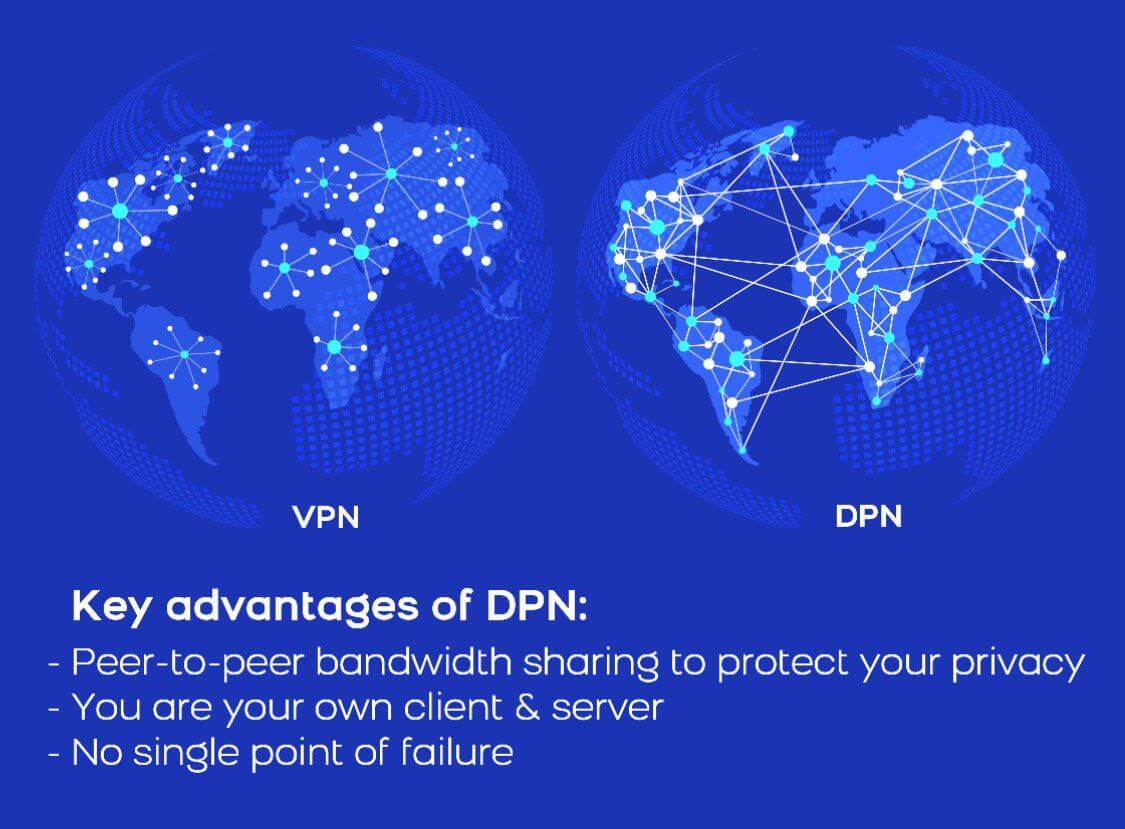When the internet was introduced in the 1990s, it was a new way for people to access information and connect globally. Unfortunately, the internet later became a hub where governments and companies track your activities, collect data, and invade your privacy. During this period, Virtual Private Networks (VPNs) became a service that helped mask a user’s online identity and allowed the user to surf the internet with “privacy.”
A VPN hides your IP address by routing your connection through a physical server, giving you a new IP address. This new IP address could help you access geo-restricted content, side-step firewalls, and protect your identity. In addition, these VPN services use centralized servers worldwide, allowing users to connect to use its service.
VPN services store your data and browsing history and monitor your online activity. Unfortunately, this data is often sold to third parties and can be easily subpoenaed by government officials. In addition, centralized servers are prone to be attacked as they are treasure troves for hackers looking for personal data.
A blockchain-based solution called a decentralized VPN (DPN) had become a solution to these problems. Decentralized Private Networks (DPN) are Peer-to-Peer (P2P) networks that take out the third party that are central points of weakness in any network. In a decentralized network, each node acts as its client and server. This allows the user to have complete control over their data and personal information.

What are some of the advantages of a DPN over a traditional VPN?
DPN may be cheaper than a VPN
Traditional VPNs have monthly or yearly subscription plans. Prices for VPNs vary across providers, with some going as low as $2.30 per month for an agreed period. Often these prices rise at the end of the contract hoping you will continue to subscribe once the promotional price ends. DPNs have a $0 subscription model as purchasing the device is the only cost to the user.
Faster Speeds with No Downtime
VPNs route users to limited servers worldwide, which often creates congestion, especially during peak hours. DPNs are their client and server; thus, users can connect to any device on the global network. This allows for little or no internet slowdowns at any time. Some newer VPNs services have optimized services for streaming to mitigate this issue. However, since they use fixed IP addresses, these are also prone to be banned by streaming services. DPNs are a newer entity, so quite how they will scale is not fully known yet, but the use of scaling optimized chains such as Polkadot means congestion is less likely.
No Logs
VPNs log data on centralized servers. These servers may contain personal data. You can, however, view VPN logging policies on third-party websites to assess your exposure. DPNs, on the other hand, log data on your device, meaning your information never leaves your device.
DPNs partially mask IP addresses, so if a device is used as a VPN by another user, both parties are safe without anyone’s identity revealed.
It’s Decentralized
VPNs are centralized, creating a central point of weakness. Each server is a hub and is responsible for its service to a dedicated region. If that server gets hacked, all the information that is logged on that server can be leaked.
DPNs are decentralized, which means each device is both your server and VPN service; the data is stored on your device. This means that the responsibility to protect your data lies with you. Some may not wish to adopt this risk, but history dictates that VPN services are better targets for hackers than personal devices.
Earn Passive Income
Bandwidth sharing on DPNs allows users to earn cryptocurrencies as passive income. VPNs cannot earn passive income. The Deeper Connect Pico by the Deeper Network, for example, enables a user to make cryptocurrency while using a decentralized VPN service. They do this by combining blockchain with network security and a sharing economy.
As a Web 3.0 project, the DPN gives ownership of the internet back to the people. In addition, using a DPN makes your data more secure, and you get to earn passive income by sharing your bandwidth with others on the network.
The post The case for Decentralized Private Networks over traditional VPNs appeared first on CryptoSlate.